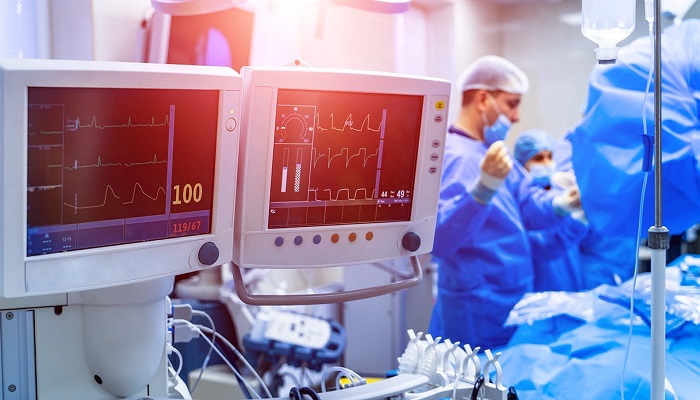Doctors Get Inside Look at Gut Health With AI-Powered Endoscopy by Odin Vision
Odin Vision, now part of global medtech company Olympus, is building cloud-connected AI models for polyp characterization and cancer detection during colonoscopy.
From humble beginnings as a university spinoff to an acquisition by the leading global medtech company in its field, Odin Vision has been on an accelerated journey since its founding less than five years ago.
An alum of the NVIDIA Inception program for cutting-edge startups, Odin Vision builds cloud-connected AI software that helps clinicians detect and characterize areas of concern during endoscopy, a procedure where a tiny camera mounted on a tube is inserted into the gastrointestinal tract.
Network-connected devices in the endoscopy room capture and stream real-time video data to the cloud, where powerful NVIDIA GPUs run AI inference. The models’ results are then streamed back to the endoscopy room so that clinicians can see the AI insights overlaid on the live video feed with minimal latency.
The startup was in 2022 acquired by Japanese medtech leader Olympus, which has a 70% global market share in gastrointestinal endoscopic equipment.
“We believe the acquisition brings us much closer to achieving our vision to revolutionize endoscopy through AI and cloud technology,” said Daniel Toth, cofounder and chief technology officer of Odin Vision. “Our software can reach Olympus’ global customer base, enabling us to bring our solutions to as many patients as possible.”
Olympus is also collaborating with NVIDIA on Olympus Office Hours, an advisory program that connects Inception startups with the medical device company’s experts, who will offer deep industry expertise and guidance to help the startups build AI solutions in key areas including gastroenterology, urology and surgery.
Eight leading AI startups have joined the inaugural cohort of the program — which is part of the NVIDIA Inception Alliance for Healthcare, an initiative that brings together medical AI startups with NVIDIA and its healthcare industry partners — to help accelerate their product development and go-to-market goals.
An Extra Set of AIs for Clinicians
Around a quarter of precancerous polyps are missed during colonoscopies, a kind of endoscopy procedure that examines the lower digestive tract.
While some are missed because the endoscope doesn’t capture video footage of every angle, others remain undetected by clinicians. That’s where AI can help provide a second set of eyes to support clinical decision-making.
Seamless AI integration into the video feeds that medical professionals view during an endoscopy provides an extra data source that can help doctors detect and remove polyps sooner, helping prevent cancer development.
“Polyps develop slowly, and can take five or 10 years to appear as cancer,” Toth said. “If a clinician can detect and remove them in time, it can help save lives.”
CADDIE, the company’s AI software for detecting and classifying polyps, has received the CE Mark of regulatory approval in Europe and is deployed across hospitals in the U.K., Spain, Germany, Poland and Italy — with plans for use in the U.S as well.
Odin Vision also has AI software that has received the CE Mark to assist gastroscopy, where doctors inspect the esophagus for signs of throat cancer.
Accelerated Inference for Real-Time Insights
Odin Vision began as a research project by two professors and a Ph.D. student at University College London who were developing AI techniques for polyp detection. In 2019, they teamed with Toth and Odin’s CEO, Peter Mountney, both from Siemens Healthineers, to commercialize their work.
“NVIDIA GPUs were part of our work from the start — they’ve been essential to train our AI models and were part of our first product prototypes for inference, too,” Toth said. “Since moving to a cloud-based deployment, we’ve begun using the NVIDIA Triton Inference Server for dynamic processing in the cloud.”
The team uses NVIDIA Tensor Core GPUs for accelerated inference — most recently transitioning to NVIDIA L4 GPUs. Adopting NVIDIA Triton Inference Server software and the NVIDIA TensorRT software development kit enabled them to meet the low-latency threshold needed for real-time video-processing AI applications.
In addition to supporting doctors during specific procedures, Odin Vision plans to develop generative AI models that can automate a first draft of the clinical notes doctors prepare afterward — as well as models that can aggregate data across procedures. These would allow endoscopy teams to review analytics and assess how well a procedure is performed compared to clinical guidelines.
“Once you get to a point where there are dozens of AI models tracking different elements of these procedures, we can see if a healthcare professional is inspecting a particular area of the digestive tract for only three minutes, when it’s supposed to take six minutes,” Toth said. “The system can provide a nudge to remind the clinician to follow the guidelines.”
Cloud-Connected Cancer Screening
Membership in NVIDIA Inception provided the Odin Vision team access to technical expertise from NVIDIA and cloud credits through leading cloud service providers.
“Cloud credits helped us massively speed up our technology development and deployment, enabling us to release our products to market months earlier than initially planned,” Toth said. “NVIDIA experts also validated our product concept from a technology perspective and provided consultation about GPU and accelerated software optimizations.”
The team found that a cloud-based solution made it easier to push software updates over the air to deployments across hospital customers.
“Some AI companies are sending boxes that need to sit in clinical sites and require regular maintenance, which can prevent normal clinical workflows from running smoothly,” Toth said. “With network-connected devices, we can instead update a single server and the changes reach all end users at the same time.”
Source: NVIDIA


